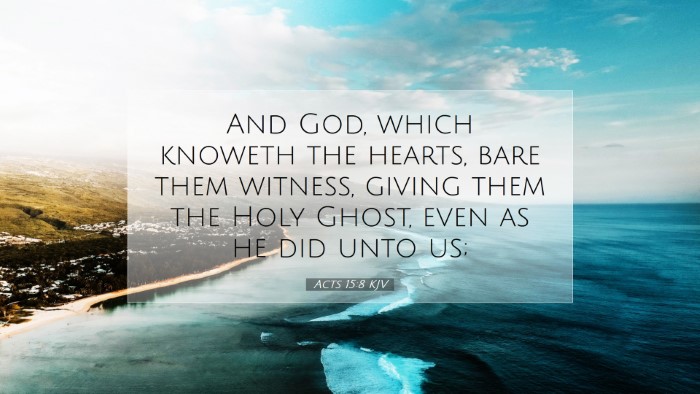Old Testament
Genesis Exodus Leviticus Numbers Deuteronomy Joshua Judges Ruth 1 Samuel 2 Samuel 1 Kings 2 Kings 1 Chronicles 2 Chronicles Ezra Nehemiah Esther Job Psalms Proverbs Ecclesiastes Song of Solomon Isaiah Jeremiah Lamentations Ezekiel Daniel Hosea Joel Amos Obadiah Jonah Micah Nahum Habakkuk Zephaniah Haggai Zechariah MalachiVerse
Acts 15:1 Acts 15:2 Acts 15:3 Acts 15:4 Acts 15:5 Acts 15:6 Acts 15:7 Acts 15:8 Acts 15:9 Acts 15:10 Acts 15:11 Acts 15:12 Acts 15:13 Acts 15:14 Acts 15:15 Acts 15:16 Acts 15:17 Acts 15:18 Acts 15:19 Acts 15:20 Acts 15:21 Acts 15:22 Acts 15:23 Acts 15:24 Acts 15:25 Acts 15:26 Acts 15:27 Acts 15:28 Acts 15:29 Acts 15:30 Acts 15:31 Acts 15:32 Acts 15:33 Acts 15:34 Acts 15:35 Acts 15:36 Acts 15:37 Acts 15:38 Acts 15:39 Acts 15:40 Acts 15:41

